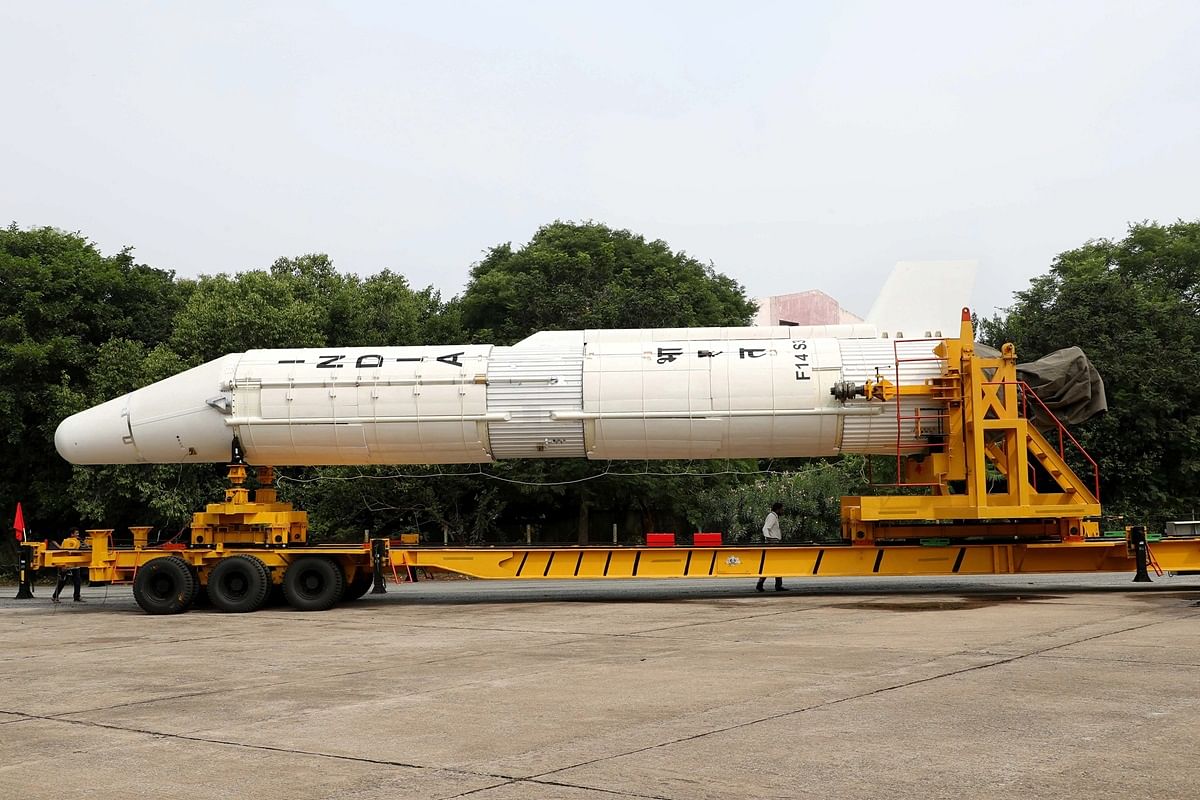
ISRO is preparing to launch its second mission in 2024 as part of its ongoing efforts to strengthen India's capabilities in space exploration and meteorological monitoring. The primary goal is to place the INSAT-3DS satellite into Geosynchronous Transfer Orbit using the Geosynchronous Satellite Launch Vehicle (GSLV).
Overview of INSAT-3DS Weather Satellite:
-
The INSAT-3DS weather satellite is scheduled for liftoff on February 17 at 5:30 pm from the Satish Dhawan Space Centre (SDSC) SHAR in Sriharikota. This mission aims to bolster meteorological observations, thereby enhancing weather forecasting and disaster warning capabilities.
-
INSAT-3DS represents India's third-generation meteorological satellite, fully funded by the Ministry of Earth Sciences. Its design is tailored to augment meteorological services alongside the operational INSAT-3D and INSAT-3DR satellites. With a primary focus on advanced meteorological observations, INSAT-3DS will monitor both land and ocean surfaces, significantly improving weather forecasting and disaster management efforts.
-
The Geosynchronous Satellite Launch Vehicle F14 (GSIV FI4) will facilitate the launch of INSAT-3DS, showcasing advanced capabilities to support various space missions, including earth resource surveys, communications, and navigation.
Key Objectives of INSAT-3DS Mission
The primary objectives of the INSAT-3DS mission encompass monitoring Earth's surface, conducting oceanic observations, and providing meteorological data through advanced payloads. Equipped with a six-channel imager and a 19-channel sounder, the satellite aims to offer crucial insights into atmospheric conditions and environmental changes.
The INSAT-3DS project stands as a testament to the collaborative efforts between ISRO and various departments under the Ministry of Earth Sciences. Entities such as the India Meteorology Department (IMD), National Centre for Medium-Range Weather Forecasting (NCMRWF), Indian Institute of Tropical Meteorology (IITM), National Institute of Ocean Technology (NIOT), Indian National Centre for Ocean Information Services (INCOIS), and other agencies will utilize the satellite data to provide enhanced weather forecasts and meteorological services.
The launch of INSAT-3DS marks a significant milestone in ISRO's ambitious calendar for 2024, which includes a diverse range of missions. Earlier this year, ISRO successfully launched XPoSat (X-ray Polarimeter Satellite) on January 1, initiating investigations into the polarization of intense X-ray sources and the study of black holes.















